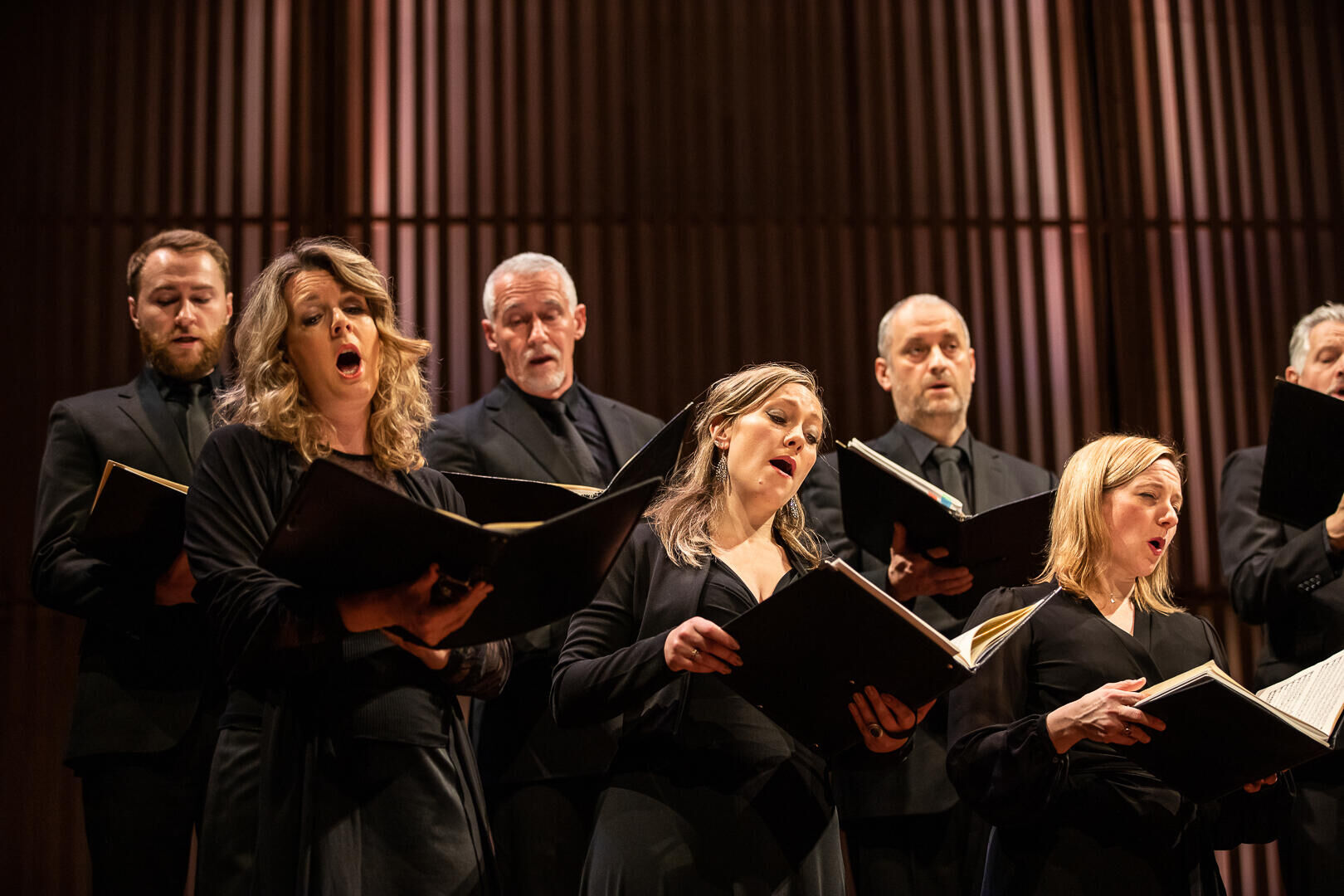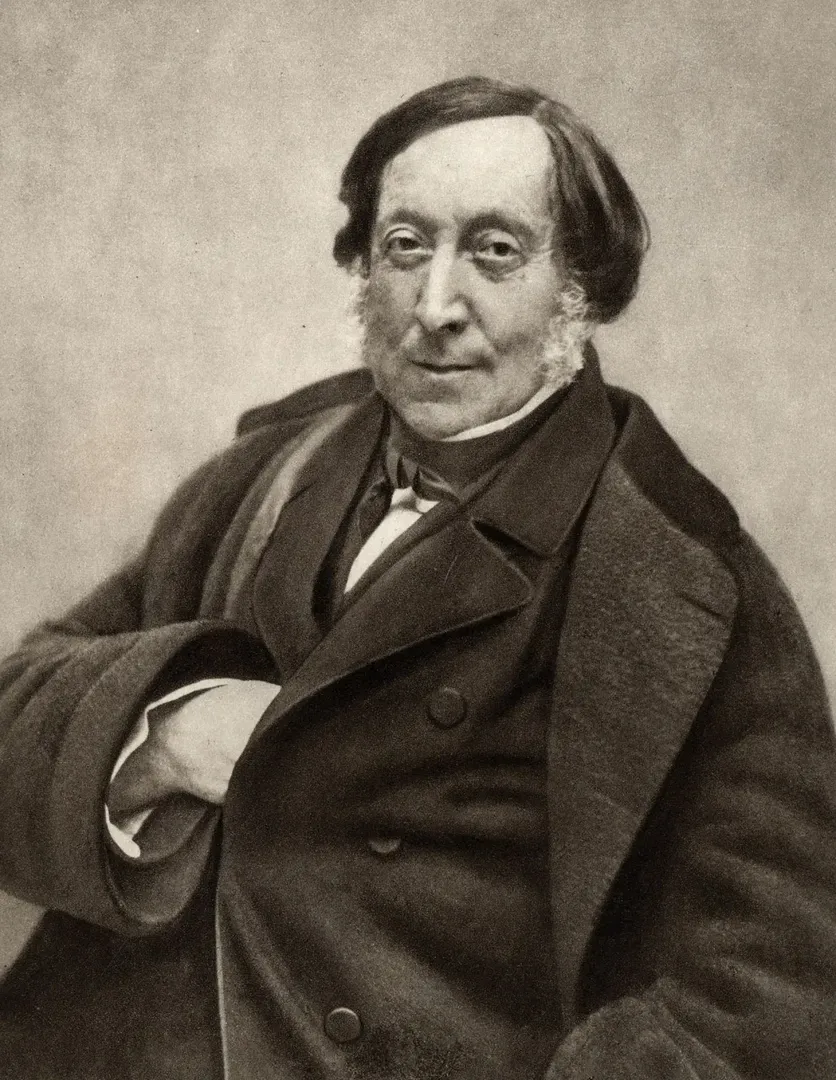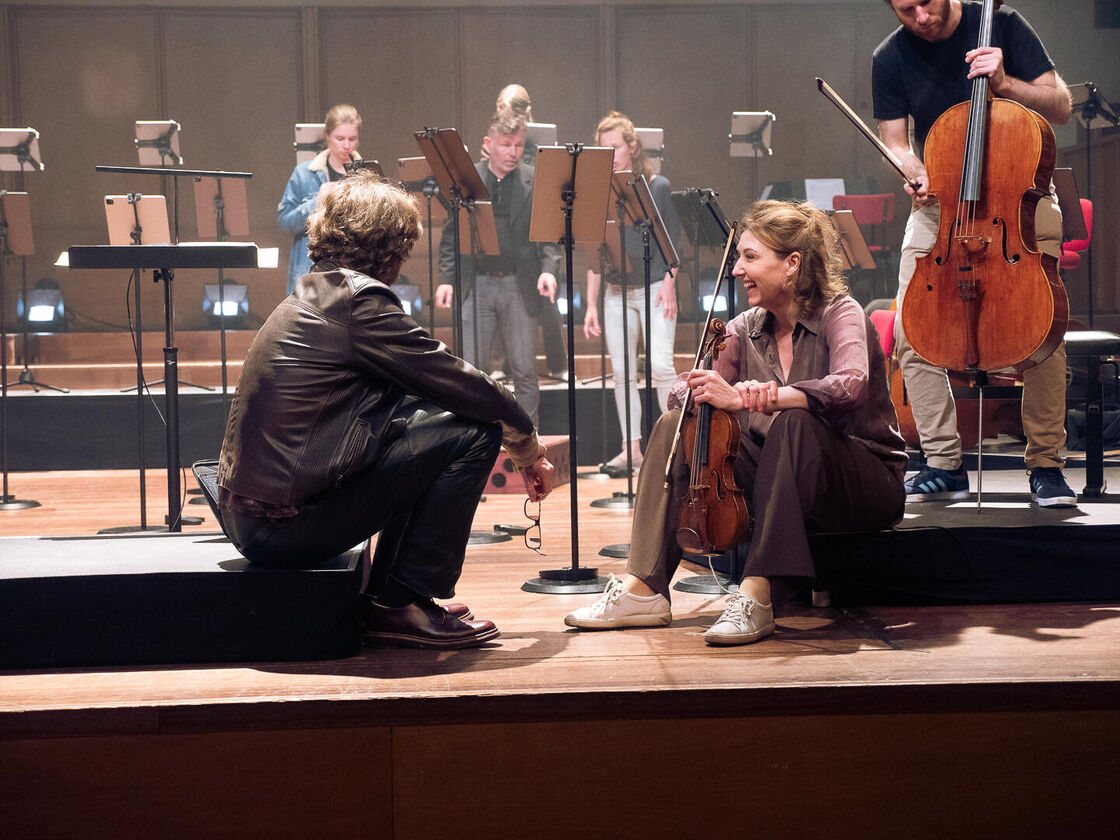From 7 to 17 February, Amsterdam Sinfonietta and the Nederlands Kamerkoor will tour the Netherlands with Gioachino Rossini's Petite messe solennelle. The composer's 'last mortal sin of my old age' is performed in a new arrangement by Wijnand van Klaveren, and is conducted by violinist Candida Thompson. Together with Tido Visser, artistic director of the Netherlands Chamber Choir, look forward to the concerts with 'cheerful Tom & Jerry music interspersed with blood-serious passages.'

An opera disguised as a mass with soloists from the choir
The Petite messe solennelle was what Rossini called "last mortal sin of my old age" and is an opera disguised as a mass. But there is much more special about the tour that starts on 7 February.
An opera disguised as a mass with soloists from the choir
Gioachino Rossini (1792-1868) is undoubtedly one of the strangest birds in music history. He was eighteen when his first opera was premiered and he continued his path in opera land with hits like L'italiana in Algeri, Il barbiere di Siviglia and La Cenerentola. He would write thirty-nine operas, both in the opera buffa and opera seriast styles, most of which were very successful.

In 1829, he composed his last opera with Guillaume Tell and then remained silent for decades. Only when he settled in Paris in 1855 after a long stay in Bologna did he start writing piano works and vocal pieces again for the musical salons he held there, where guests such as Franz Liszt, Anton Rubinstein and Guiseppe Verdi joined him. Péchés de vieillesse (sins of old age) Rossini called these pieces with slight self-mockery.
Only when he settled in Paris in 1855 after a long stay in Bologna did he start writing piano works and vocal pieces again for the musical salons he held there, where guests such as Franz Liszt, Anton Rubinstein and Guiseppe Verdi joined him. Péchés de vieillesse (sins of old age) Rossini called these pieces with slight self-mockery.
Why he did not compose anything for so long has always remained a mystery. It may have had to do with his shaky health or with the wealth he had acquired from his operas, which allowed him to live a life of laziness. The rise of grand opera in France, which Rossini had nothing to do with, has also been mentioned as a reason for his long silence.
Deadly sin
The fact is that he suddenly put a striking exclamation mark behind his oeuvre in 1863 with his dernier péché mortel de ma vieillesse, literally: the last mortal sin of my old age, the Petite messe solennelle. The voluminous work, which Rossini ironically endowed with the adjective 'petite', was probably created at the hands of French count and banker Michel-Frédéric Pillet-Will, who wanted a mass written for his wife Louise. The mass, dedicated to Louise, in its original scoring of 12 singers, including four soloists, two pianos and a harmonium, was premiered in the count's private chapel on 14 March 1864.
Afterwards, Rossini orchestrated the work, mainly to get ahead of hijackers on the coast. This version was not premiered until 24 February 1869, a few months after the composer's death. The fact that Rossini did not get this version performed earlier had everything to do with the fact that he wanted the mass performed in church with women instead of boy sopranos, purely because he did not like their vocal colour. The pope refused to give permission for this.
Balanced narrative
Thus, the mass remained quite obscure for a long time. It was not until the 1980s that the first critical edition appeared on the market. Meanwhile, both the orchestral and chamber versions are among Rossini's most performed works. Reason enough for Amsterdam Sinfonietta and the Nederlands Kamerkoor to ask arranger Wijnand van Klaveren to provide the mass with a new arrangement that does justice to both versions. The result is an exciting journey for strings, harmonium, two horns and choir. 'We don't have many colours in the orchestra, but Wijnand has done a lot in contrasting strings, harmonium and horns,' says violinist and artistic director Candida Thompson enthusiastically.
'I was able to take over ninety per cent of the string settings from Rossini's orchestral version,' Wijnand van Klaveren responds modestly. 'Other than that, it was mainly a matter of making a balanced translation from the woodwinds to the harmonium and thinning out the brass, which Rossini uses heavily, to a balanced two-voiced horns. Relatively most complicated was reworking the Qui tollis peccata mundi duet. Especially translating the figurations from the two harps nicely to the string orchestra was a challenge.'

Without conductor
Another special feature is that Amsterdam Sinfonietta and the Nederlands Kamerkoor will perform the work without a conductor, but led by violinist Candida Thompson. 'This performance of the Petite messe solennelle grew out of an earlier project with the Nederlands Kamerkoor around Fauré's Requiem, which we also performed without a conductor,' she explains the genesis of the Rossini concerts. 'We are used to that, but for the choir it is quite difficult. Still, the choir members were enthusiastic, because it gives a lot of room for their own input. I cannot tell singers how to sing and limit myself to indicating the lines and monitoring the balance and timing. In this, the choir is a self-contained unit.'
'You don't have a conductor you can cling to, so you have to be even more alert, even more in tune with each other. This makes it exciting, but also a lot of fun,' says Tido Visser, Artistic Director of the Nederlands Kamerkoor. 'What is also unique is that the solos are sung by different choir members. This gives you a very nice multicolour in the solos and an even more interesting piece.'
'I hope we will reach a higher level again with Rossini after the experience with Fauré together,' says Candida.
'It remains a challenge to perform such a work without a conductor, but for Amsterdam Sinfonietta it shouldn't be a problem,' says Wijnand adamantly. 'If you know all that the ensemble has already played without a conductor...'
Moreover, the Petite messe solennelle is not the most difficult work ever written. Although that says nothing about its content. Rossini described the mass in his own playful way on the last page of the score: 'Dear God, here it is, the poor little mass. Is it really sacred music or have I made sacrilegious music? I was born for opera buffa, as you know. So be blessed and grant me paradise.'
Tom& Jerry
'It's a mass, but one with a wink,' thinks Candida. 'I really like the operatic side of the work. Rossini had connections with religion and knew tradition, but at the same time he remains the opera composer he was.'
For Wijnand it is even clearer: 'I experience the work as an opera disguised as a mass, as cheerful Tom & Jerry music interspersed with blood-serious passages. For instance, at the beginning of the concluding Agnus Dei, I hear a mouse hiding and then that heaven-sent music of the Lamb of God begins. In the Kyrie, the horns play a jolly sort of 'slept-out' motif reminiscent of the bullying Bartolo from the Barber of Seville. The tenor aria Domine Deus from the Gloria seems more like a declaration of love to Rosina from the Barber than an ode to Our Lord, and the Crucifixus sounds to me more like an old lady looking back on her marriage than a crucifixion... Thus, when listening to the work, I still regularly burst into laughter.'
'That is precisely what makes the work enormously human,' Candida thinks. 'It touches on the spiritual, but it also remains very earthly. For many people nowadays, a mass or requiem is too heavy, frightening even, while so much beautiful music has been written in this genre. Rossini's Petite messe solennelle is the perfect work to win people over again.'
Paul Janssen
